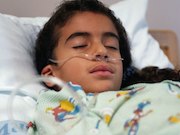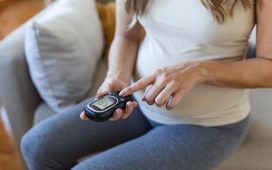Preprocedural fasting duration not linked to adverse events for children undergoing procedural sedation
WEDNESDAY, May 9, 2018 (HealthDay News) — For children undergoing procedural sedation for a painful procedure, fasting duration is not associated with adverse events, according to a study published online May 7 in JAMA Pediatrics.
Maala Bhatt, M.D., from the Children’s Hospital of Eastern Ontario in Ottawa, Canada, and colleagues conducted a planned secondary analysis of a prospective cohort study involving children aged 0 to 18 years who received procedural sedation for a painful procedure in six pediatric emergency departments. A total of 6,183 children were included in the analysis; of these, 48.1 and 5 percent did not meet American Society of Anesthesiologists fasting guidelines for solids and liquids, respectively.
The researchers found that there were no cases of pulmonary aspiration. A total of 717 adverse events occurred (11.6 percent), of which 68 (1.1 percent) and 315 (5.1 percent) were serious adverse events and vomiting, respectively. There was no significant change in the odds ratio of occurrence of any adverse event, serious adverse event, and vomiting with each additional hour of fasting duration for solids and liquids.
“In this study, there was no association between fasting duration and any type of adverse event,” the authors write. “These findings do not support delaying sedation to meet established fasting guidelines.”
Editorial (subscription or payment may be required)
Copyright © 2018 HealthDay. All rights reserved.








